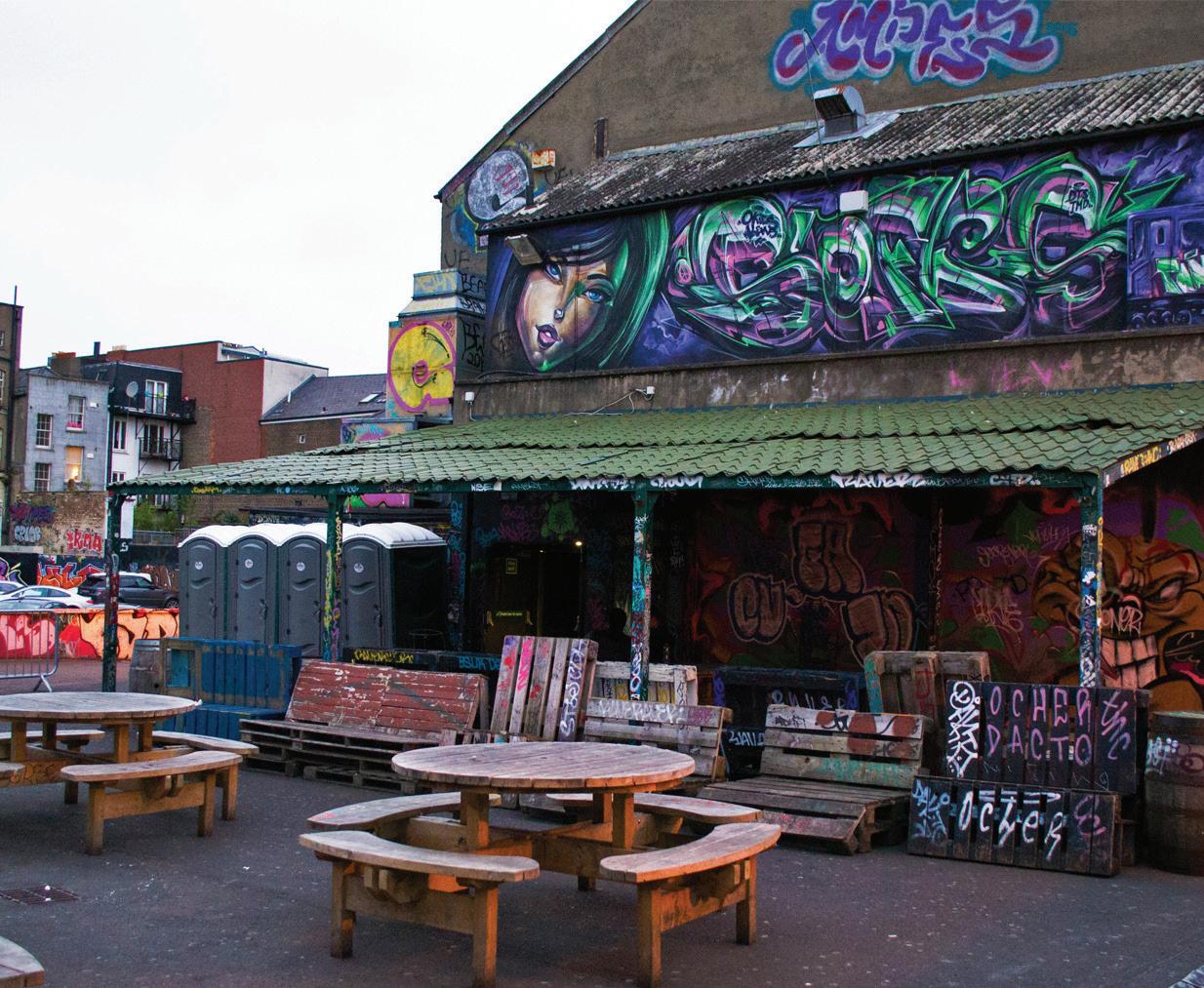
4 minute read
The act of worship performed during the modern Hindu festi
from The Hype Issue 6
Culture The Night Mayor issue of Dublin nightlife
Áine O’Boyle examines the Dublin nightlife scene and
Advertisement
how it can be protected
In a recent interview with The College View, artist and illustrator, Stephen Heffernan, said that Dublin can often feel like a city that “doesn’t love you back,”.
For many of those involved in the cultural sector, this statement accurately reflects the current atmosphere within the city. With more and more cultural spaces closing down and a lack of governmental support for those in the arts, Dublin’s cultural scene has become more hostile than ever. Deeply engrained within the culture of any city is its nightlife, and as the winter months fall upon us, the importance of nightlife becomes ever-more significant, as with fewer daylight hours many cultural activities are left to take place throughout the late evening and night.
A general misconception surrounding the term “nightlife” is that it only refers to nightclubs and bars. The term “nightlife” instead refers to a vibrant scene of cultural activities that take place after dark, from concert and gigs, to gallery exhibitions, plays and theatre, and it is vital that night-time culture be protected in order for any city to thrive.
In many major cities, a night mayor has been deployed to ensure that nightlife is protected and governed, and according to the night mayor of Amsterdam, Mirik Milan, the protection of nightlife in a city must first start with a conversation.
“Get the clubs, the cultural spaces, and get them thinking about how the city’s nightlife should look.” he told The Irish Independent.
Such conversations have already begun in Dublin city, with groups such as ‘Give us The Night’ campaigning for positive changes to nightlife in Ireland.
The group is comprised of a number of independent volunteers, operating within the nighttime, with the majority of their campaigning resting on the music industry.
Not only is a night-time industry of cultural significance to Dublin, it is also of economic importance to Ireland as a whole.
Other European countries exhibit the yearly worth of their nightlife as a point of pride, with the UK’s night-time economy being valued at £66 billion, and Berlin’s clubbing industry alone being worth €1.5 billion. Yet, Ireland still fails to recognise the value of the night-time economy and has created an uninhabitable environment for nightlife to survive in with its draconian licensing laws.
For those venues operating late at night, they must apply each month to a local court for licenses of which require the approval of a judge and a member of An Garda Siochana to obtain.
These licenses cost a fee of €410, plus the cost of legal fees, for each night that the venue chooses to open late for, making it impossible for both small and medium sized businesses and venues to operate on a late-night license.
Ireland’s archaic licensing laws have their roots in the deeply Catholic Irish society of the past. A society in which dance halls were overseen by priests and the practice of “immoral” carry-on at such events was deeply frowned upon by the Catholic Church. With the separation of church and state being an ever-prevalent and ever-changing factor of Irish life, the outlook on nightlife could be one of the last remnants of the Catholic Church’s influence on Irish life.
Often nightlife can be viewed as the opposite of culture, when one thinks of the clubbing scene in Dublin, images of people trawling down Harcourt street, drunk out of their wits, shouting and hollering after a night in Coppers can spring to mind. But much of this situation has been set by the licensing laws currently at play.
If club venues and bars are allowed to operate later, every nightclub in the city is not then kicking people out as soon as the clock strikes 2.30 a.m. Instead, people leave as they choose, staggering the times that the streets become busy, making it safer to leave when you choose and not to mention relieving the burden placed upon McDonald’s staff when everyone suddenly makes a B-line for McNuggets after a night of drinking and dancing. The night mayor of Amsterdam said: “Nightlife is really often, in the old way of thinking, seen as a problem rather than an opportunity. I saw an opportunity for the city to work together with
operators and also residents to create this dialogue. We set out on this quest for more respect for nightlife.”
Earlier this year, Dublin City Council announced plans to establish a night mayor under the Dublin City Agreement 2019-2024, with the aim of promoting the cultural manifesto of Dublin as both a tourist location and as a place for real people to live and thrive.
The agreement also proposed to deliver five per cent cultural, creative community space within the city, building upon the underutilised cultural resources that could be used to improve the lives of Dubliners.
With the loss of a number of valuable cultural spaces within the city, from Hangar to District 8 and the Tivoli Theatre, a conversation around the issue is not simply enough and real action from Dublin City Council and the Irish government is required to implement serious change.
Blindboy Boatclub said recently on The Late Late Show that “our cultural footprint is huge” here in Ireland. Therefore, it is now time for the government to tap into this resource and to value nightlife and culture as an integral part of Irish life.










